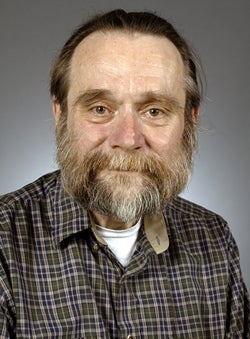This month, Cambridge University Press will publish Professor Charles Donahue’s “Law, Marriage, and Society in the Later Middle Ages: Arguments about Marriage in Five Courts,” a 696-page comprehensive study of medieval marriage culture and litigation.
The culmination of many years of research, Donahue’s book focuses on marriage litigation in the archiepiscopal court of York (1300-1500) and the Episcopal courts of Ely (1374-1381), Paris (1384-1387), Cambrai (1438-1453) and Brussels (1448-1459).
“Human experience is extraordinarily varied, and the relationship between the law and that experience is anything but simple,” Donahue writes in his introduction. “But the mind seeks to impose patterns on the variety, to understand the experience by grouping like cases to see if larger patterns can be discerned. Fortunately, the litigation experience in medieval marriage cases can be organized into distinct categories; perhaps the underlying social experience can be so organized as well.”
Donahue’s statistical analysis of the cases and results from each of the five courts confirms that there were substantial differences in the types of cases heard by each court and the results reached. Arguing that marriages in England in the later Middle Ages were more often under the control of the parties to the marriage, while marriages in northern France and the southern Netherlands were more often controlled by the parties’ families and social superiors, Donahue reveals examples of late medieval men and women manipulating each other and the courts to produce widely varied results.
The volume is accompanied by an e-book with further texts and commentary, a table of cases, an index of persons and places, and a table of authorities.
Early readers have commended the book’s compelling human interest. “Charles Donahue unveils for us the mysteries of marriage … not from the stale words of law books but from the real and, at times, raw proceedings of cases—hundreds of them—in church courts,” writes F. Donald Logan, emeritus professor of history at Emmanuel College, Boston. “And his vision goes beyond what the courts say and do, as he, with intelligence and enviable common sense, describes what must have been happening in peoples’ lives: the tragic, the mundane and, even, the comic.”
Professor James Brundage of the University of Kansas concurs: “The book is filled with wonderful, but often pathetic, stories of the matrimonial tangles that ordinary people and their families managed to create and the contortions that they went through when they tried to undo them.” Brundage goes on to call the book “the crowning achievement of a long and distinguished scholarly career.”
